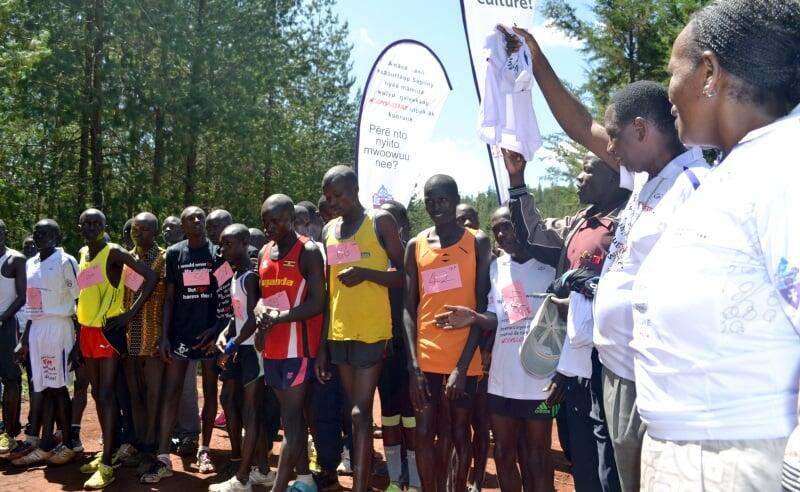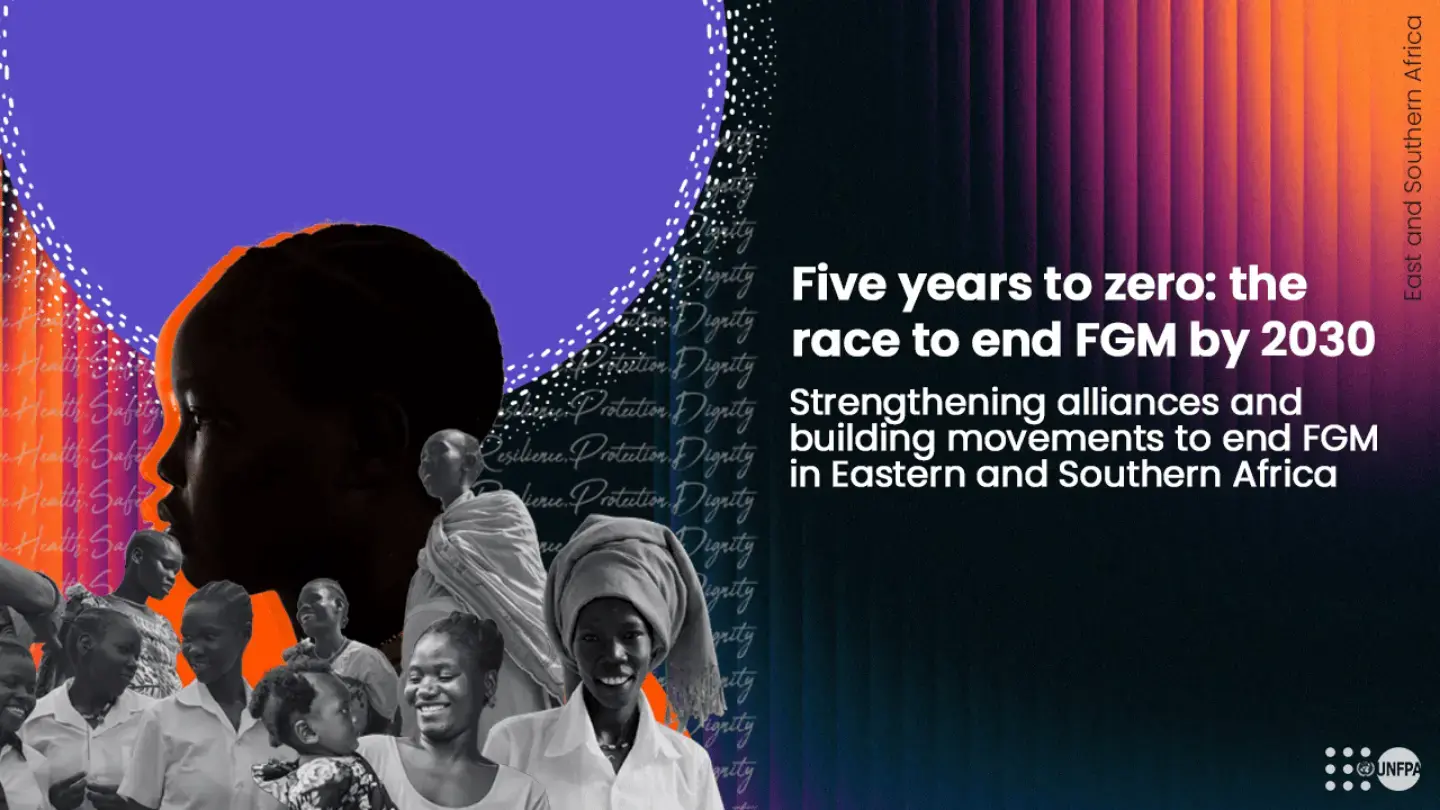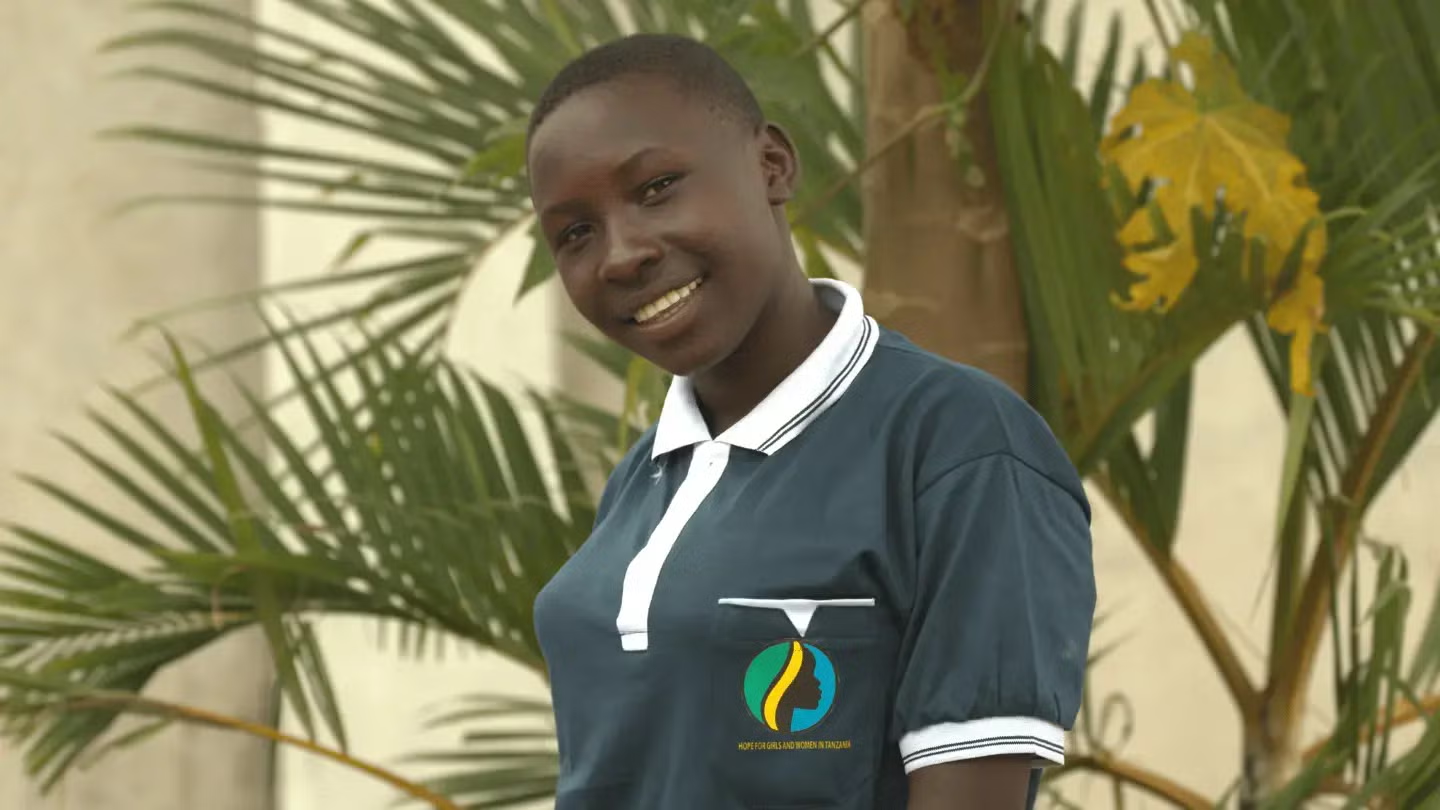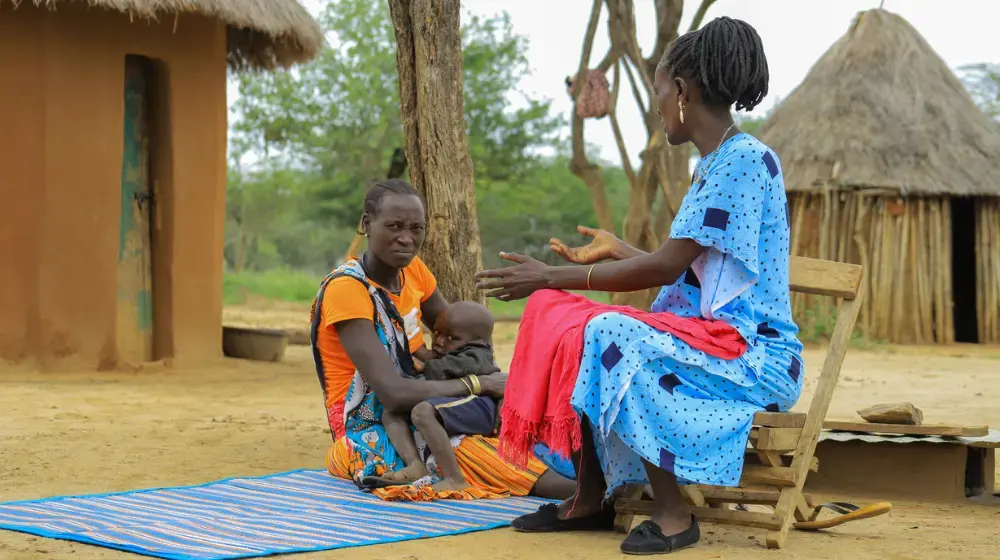KAPCHORWA, Uganda – The lush vegetation and mountainous terrain of Kapchorwa district in north-eastern Uganda is breathtaking but it hides a dark secret. For in Kapchorwa and the neighboring districts of Kween and Bukwo, known locally as the Sebei Region, female genital mutilation (FGM) is performed on Sebei girls and women as a traditional custom.
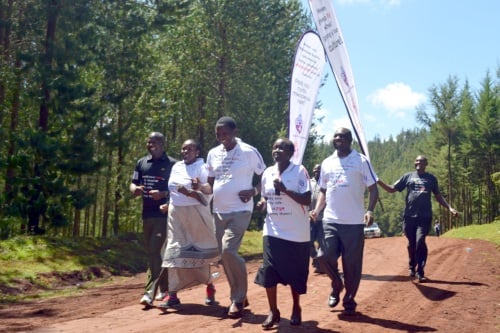
FGM, or the partial or total removal of the external female genitalia, is performed on girls as young as eight years old and also to women of the Sabiny tribe. The cultural belief is that whoever does not undergo this rite of passage to womanhood stays a girl for eternity.
Yet even here, things are starting to change. A race organized in September by the Church of Uganda Sebei diocese, with support from UNFPA, to accelerate the abandonment of FGM showed that the movement is gaining momentum.
The race attracted over 2000 participants, including internationally renowned professional runners. One of them was Moses Kipsiro, Uganda’s long-distance runner and Commonwealth Gold medalist.
The marathon was flagged off by the Archbishop of the Church of Uganda, His Grace Stanley Ntagali, and included two bishops as participants. He was accompanied by the Bishop of Sebei diocese, the Rt. Rev. Paul Masaba Kiptoi, UNFPA Country Representative Esperance Fundira, the Executive Director of Reproductive Health Uganda, Jackson Checkweko, and officials from the districts of Kween, Bukwo and Kapchorwa.
The Creator made every one of us with every part wonderful. We do not need to mutilate any part of our bodies.
– His Grace Stanley Ntagali, Archbishop of Church of Uganda
“FGM is not necessary” – Archbishop
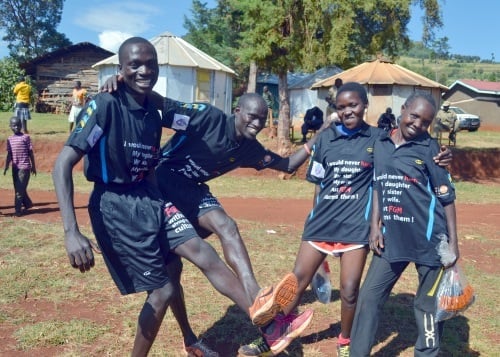
FGM is not a necessary traditional practice, Archbishop Ntagali said to the runners at the end point of the marathon: “The Creator of the heavens and the earth, our God, made every one of us with every part wonderful. Male and female were both created in his image and he marvelled at His work for which he said, ‘It is good’. We do not need to mutilate any part of our bodies for any reason because this profits nothing, pains us and does not please God.”
The loud cheer from the crowd was a clear sign that the church’s active engagement in the campaign to end FGM is a game changer. For more than 15 years, several groups including community-based organizations, youth groups, women’s groups and Kraal leaders, among other local partners, have been mobilizing communities to end FGM in the region. Their work has generated a significant community response, with many cutters abandoning the practice.
Church fights FGM on spiritual level
The church’s active engagement adds a unique aspect to the campaign. The church is able to respond to spiritual issues, such as that of Jackeline, a young woman who claims that it was the spirits who asked her to get cut.
The spirits kept harassing me so I decided to cut myself. – Jackeline, 23, arrested for FGM then later pardoned by the President of Uganda
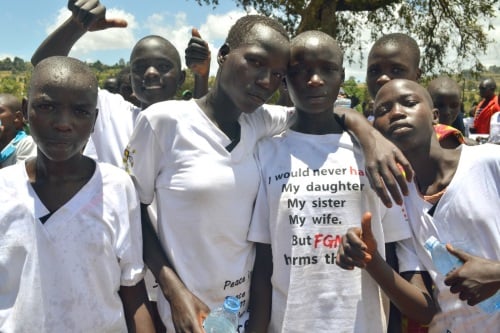
Jackeline, 23, from Kirokwo Parish, Kaptainya sub-county in Kapchorwa, was among a group of women arrested for undergoing FGM in November 2014 and spent almost a year in prison. Married for over seven years and a mother of two, she was beyond the typical age at which girls are cut. However, she said she was forced to do it by the spirits.
“The spirits kept harassing me so I decided to cut myself. They kept coming in my head when I was cooking or working in the garden, but only stopped after I had cut,” Jackeline says.
She says she was aware of the health consequences of FGM, including prolonged bleeding and possible infection, but she decided to join six other women who had found a cutter to perform the practice on them. They were secretly cut at night in a small hut, all with the same razor blade. Jackeline never saw the face of her mutilator.
Arrested for self-mutilating
But she and her friends were not able to complete the full ritual. “A week later, when I was still healing, the police came and arrested us,” she said softly. “We spent almost a year in prison and were released just three days ago.”
Jackeline and her peers were pardoned by the President of Uganda, Yoweri Kaguta Museveni, who in 2010 assented to a law prohibiting FGM. When pardoning the women, President Museveni warned the community to stop the harmful practice.
Culture is dynamic and not static. If a cultural practice is proved to be harmful to humans, like FGM, we cannot simply continue practicing it because it is our culture.
– His Grace Stanley Ntagali, Archbishop of Church of Uganda
Jackeline’s story demonstrates the need to continue sensitizing the population on the dangers of this practice, including the girls themselves and their parents, but also young women and men. As a religious institution, the Church of Uganda is more accepted, especially in the remote villages where the custom of FGM is deeply rooted. The spiritual messages from religious leaders are able to demystify the spiritual aspects of FGM.
“I add my voice to the scientists who have proved that this practice is dangerous to our daughters, wives and Sebei mothers. Culture is dynamic and not static. If a cultural practice is proved to be harmful to humans, like FGM, we cannot simply continue practicing it because it is our culture,” the Archbishop said.
We shall continue the fight, until FGM only exists in history books. – UNFPA Country Representative Esperance Fundira
He also alluded to an earlier statement by Ms. Fundira: “It is possible to give up FGM without giving up the meaningful, positive aspects of the Sabiny culture.”
Ms. Fundira pledged UNFPA’s continued support in the fight to end FGM: “We shall continue the fight, until FGM only exists in history books.” The crowd responded with loud applause in agreement.
By Els Dehantschutter, Esther Cherop and Prossy Nakanjako

